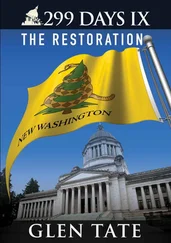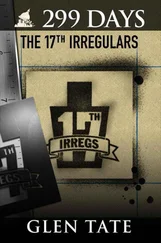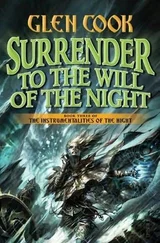Civilized people? That statement jarred Jeanie. But, then again, the government was doing the best it could to get the most supplies to the most people, and to the ones who supported the effort. Besides, Jeanie thought, the rural people were better equipped to take care of themselves. Seattle, with all the rioting welfare recipients who had been cut off, was a powder keg. Keep that place calm and let the teabaggers take care of themselves, she thought.
Jason went on. “One big problem is medical care. The hospitals are overrun, and have been for quite some time. Most medical supplies have run out. Re-supply is a priority, and some have been getting through. So many Americans are on a medication of some kind. Most of them have run out by now. People are dying. They just are. We have no solution for this. There’s not much we can do.”
He continued. “Crime is a problem, to put it mildly. Lots of people on mental illness medications are off their meds, as I mentioned.”
Jason took a drink of water. “One thing that is a state thing is the rioting and looting. Downtown Seattle has a lot of it; mostly petty criminals. There are well organized gangs running pretty much wild in the larger cities. Kind of like the L.A. Riots, I’m told.” Jason was young enough to somewhat remember the L.A. Riots, but not really. “That’s a National Guard thing. We have that under decent control. We have control during the day. The freaks come out at night.”
Jeanie raised her hand. “Is there media coverage of the night riots? I mean, I haven’t seen any video of it.”
Jason said, “And you won’t. We have an arrangement with the broadcast media and the papers. They understand they shouldn’t show that stuff. It will just scare people and encourage the looters and terrorists.”
“What about cell phone footage getting onto YouTube?” she asked.
“YouTube and other websites are not a problem for us. We have arrangements with them, too.” Jason left it at that. The wasn’t any need to scare every one about how the Feds had a virtual switch—the “internet kill switch” as it was talked about before the Collapse—that could shut down any website they chose.
Jason went on. “Oh, and the terrorists. Yes, there’s been some of that. The Red Brigades, and now some ‘Patriot’ groups. Militia teabagger whackos. The ‘Don’t Tread on Me’ people. Assholes.” What Jason didn’t say was that the “teabagger” terrorism was great for the government, politically speaking. It was almost like some of it was staged, Jason thought to himself with a mental wink.
“There’s some interesting graffiti popping up,” Jason said. “The Right is spray painting things like, ‘There is no gov’t,’ and ‘Gov’t can’t protect you.’ It’s in gold or yellow spray paint, like the color of their ‘Don’t Tread on Me’ flag, the Gadsden, I think they call it.”
“Red paint is the Leftist graffiti,” Jason explained. “Those are the predictable ones like ‘Rise Up,’ and ‘Revolution.’ That kind of thing.”
Jason paused. “Here’s a highly classified topic that’s being discussed. The Governor has issued a variety of executive orders to provide emergency powers, but she hasn’t declared full-on martial law. Should she declare martial law?”
Silence. Jeanie’s first thought was “yes.” People couldn’t have normal liberties without order. And there was no order out there.
Someone from the Governor’s Office asked, “What are the political ramifications?” That debate on went on for a while. The general consensus was that most people would want the Governor to take bold action. They would understand that martial law was temporary.
“It will take their minds off the budget,” one of them said.
The budget. That’s right, Jeanie thought. The State of Washington doesn’t have any money. So she asked, “How is all this going to be paid for? I mean, we don’t exactly have any way to pay for this.”
“We’ll worry about that later,” said the chief of staff for the State Treasurer. He had been used to saying that. It really meant, “We have no idea how to pay for anything.”
“There’s an answer for that, too,” Jason said, with yet another smile. “FCards. We are using the trillions of dollars of money people have in their bank and retirement accounts that they can’t use right now due to the Crisis.” The government could demand that people sell things to it for whatever price it set—and it had all the country’s money to use. That would solve a lot of problems, at least for a while.
Jason got serious again, “So, to answer your question of how do we pay for this, the answer is with FCard credits. The military, police, Freedom Corps members, and key civilians, like us, will get FCard credits. There will be enough in the stores we can go to.”
“There should be enough food in the regular stores for the regular people,” Jason said. “It will take an FCard for them to get food.” Jason smiled, “That’s their incentive to get with the program. You know, play ball.”
Jeanie realized that FCards were the ultimate entitlement. The authorities controlled the FCards. Therefore, they controlled the people. It was better than anything they did in the past, like having only a portion of the population dependent on them with welfare. The FCards were the ultimate entitlement and the ultimate control.
A military person asked, “How do we enforce martial law? I mean, we have a squad taken out by some hillbillies or a gang or whatever. We can barely keep I-5 and I-90 flowing. I’m a logistical guy. How do we pull off martial law?”
A discussion ensued. It centered on the fact that they had no choice. It wouldn’t be a well-enforced martial law. It would be a better-than-nothing martial law.
The question kept coming back to who would enforce it. Jason said, “Well, we have the Freedom Corps. We could use them.”
The military guy rolled his eyes. “A citizen auxiliary?” he said. “Are you serious? This is a very bad idea. Sorry, but it is.”
It was quiet for a few moments.
Jason said, “OK, I’m hearing that martial law is not a preferred solution because it will be hard to pull off, but it might be necessary, anyway. Do I have that right?” Most people nodded. Jeanie found herself nodding, too.
Jason walked over and closed the conference room door. Whatever he was going to say must be juicy. If the door stayed open for “the Governor is thinking about declaring martial law,” Jeanie wondered what the next topic could possibly be.
“Oath Keepers,” Jason said softly. “They are becoming a real problem. Everyone familiar with them?” Everyone in the room had heard of them, and nodded silently.
“The question is how many regular, Guard and Reserve units, and police departments are loyal, and how many are Oath Keeper units.”
More silence. Was this really happening? “Loyal” military units? In America?
“The Feds are having real problems with this,” Jason said. “Oath Keepers have most of the units in the South. Texas and surrounding states have privately told the President that they are ‘opting out.’ That means secession.”
Silence.
One of the staffers, a thirty-something woman dressed very well, said, “OK, so the rednecks want to leave the U.S. Let ‘em. Why should we worry about what southerners are doing way up here in Washington?”
“The military up here, like many of them at Ft. Lewis and McChord Air Force base across I-5 from us are Southern,” Jason said. “Have you ever been driving around here, near the bases, and noticed all the Texas, North Carolina, and Georgia license plates?” Jason asked. “A lot of the military guys up here are Southern.”
The staffer who asked the question said, with an attitude, “I don’t exactly hang out at military bases.”
Читать дальше











